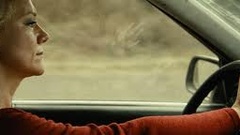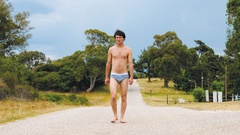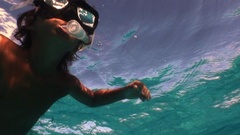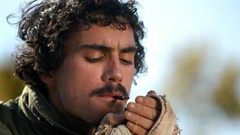Whisky (Uruguay) (2003)
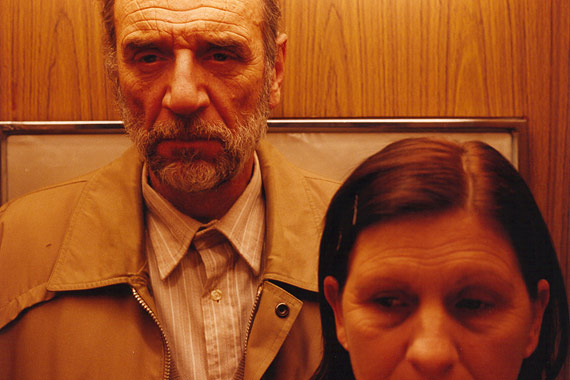
Part of the New Latin American Cinema
| Director: | Juan Pablo Rebella and Pablo Stoll |
|---|---|
| Certificate: | Unknown |
| Length: | |
| Format: | 35mm |
| Language: | Spanish with English subtitles |
| Country: |
Multi-awarded at some of the most prestigious international film festivals (Cannes, Tokyo, Chicago, Peru, Spain, etc), this is a very subtle film about human communication, or the impossibility of it.
"A gem…Beautifully low-key performances" - THE INDEPENDENT
"A jewel. Filmed with a clear sense of framing and timing, Whisky is one of the best films exhibited in Cannes. A melancholic comedy with depressive burlesque tones." - LES INROCKUPTIBLES (France)
ABOUT
Plot
Jacob Köller owns a humble sock factory and that seems to be all he has in his monotonous life. Marta is Jacob's right hand. Their relationship never goes beyond business matters, and it is marked by silence and routine.
This monotony is suddenly threatened by the announcement of an unexpected visit: Herman, Jacob's brother, will come from Brazil after more than ten years. Jacob then allows himself to ask Marta for help to cope with the situation.
Absurd farce
Hence, between absurdity and melancholy, as well as daily life and farce, the movie subtly portrays the clumsiness and little miseries of these characters, so different from one another, while they try to hide their resentment and friction.
A story told through minimum and trivial details. Three apparently harmless personalities. Three different sorts of loneliness.
What Pablo Stoll (on of the 2 directors) says
"At first it was the factory: the old machines, the fluorescent tubes, the piled-up stockings, the lives that emerged from those things. What goes on behind the metal shutters of those decaying factories? It is from all this that the characters arose.
Pure invention: two Jewish brothers and a woman. Plus, a sham, a ruse. Another invention within the invention. The original idea was quite simple, almost crazy, nothing outstanding. A small tale. A story where the characters bond with each other through a series of small lies.
We were interested in exploring the routines, the pro- tocols, the ready-made phrases, what they say and what they hide"
 "A deliciously Funny, beautifully acted, bone-dry comedy" - TIME OUT
"A deliciously Funny, beautifully acted, bone-dry comedy" - TIME OUT"A delight…It would be tough soul that didn't warm to this terrific little movie…It's wonderful stuff" - THE TIMES
"A movie with great poignancy and charm" - THE GUARDIAN
"Eccentric, comic and touching" - THE EVENING STANDARD
"A gem…Beautifully low-key performances" - THE INDEPENDENT
'A terrific film from South America… A low-key comedy that has been compared to the deadpan style of Aki Kaurismaki, this was a real discovery' - THE TIMES
AWARDS
 The film won loads of awards from around the world, and these are just some of them:
The film won loads of awards from around the world, and these are just some of them:
Winner - Un Certain Regard - Cannes Film Festival
Winner - Grand Prix + Best Actress - Tokyo International Film Festival
Winner - Best Spanish Language Goya Awards
Winner - Best Latin American Film - Uruguayan Association of Film Critics
Winner - Best Latin American Film + Best Actress - Lima Latin Alerican Film Festival
Winner - CINEMATECA URUGUAYA Award: Best Uruguayan Film 2004Winner - Miami International Film Festival: Best Actress award
Winner - 8º Latin American Film Festival in Washington D C: Special Jury Prize and the Audience Award.
Other films in the New Latin American Cinema:

14
Film: The Headless Woman (Argentina) (2008)
14 Nov 2010, 7:30 p.m.
Lucrecia Martel is one of the most promising Argentinian directors around. She has won prizes at some of the most prestigious festivals, and we are very proud to be showing her latest film. A “brilliant, maddeningly enigmatic puzzle of a movie” (The New York Times), about a woman confronted with guilt, and the history of Argentina.

18
Film: Hiroshima (Uruguay) (2009)
18 Nov 2010, 7:30 p.m.
Incredible film, at once experimental in its form, challenging in its content, and visually beautiful: this is a non-identified floating object. Best described as a silent musical: no dialogue is heard at all throughout the film, but music from unsigned Uruguay rock/metal/psychedelic bands make the film fly. 24 hours in the life of a singer with autistic tendencies.

21
Film: Alamar (Mexico) (2009)
21 Nov 2010, 7:30 p.m.
A visual poem in the stunning setting of a little house in the blue Mexican sea, where a father shows his 5 year old boy how to go fishing. Between documentary and fiction, this little gem has won prestigious prizes, among which the highest prize (tiger award) at the Rotterdam Film Festival.

25
Film: The Dog Pound (La Perrera, Uruguay) (2006)
25 Nov 2010, 7:30 p.m.
Winner of the Best Film Award at the Rotterdam Film Festival, and elected Best Uruguayan Film of 2006 by the country’s Association of Film Critics, this is a slow and contemplative film about David, a 25-year-old who loves smoking pot, and has a heroic capacity for doing nothing. Tragicomedy of a slacker, shot on 16mm.


